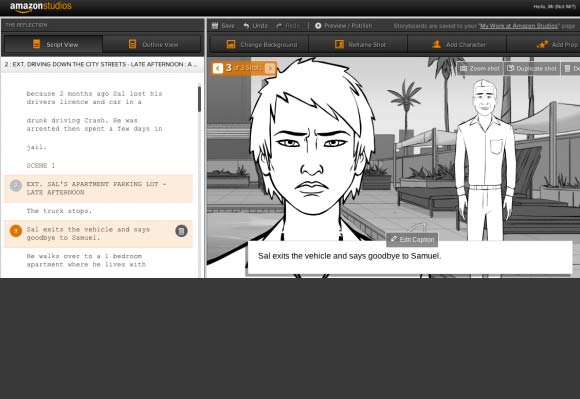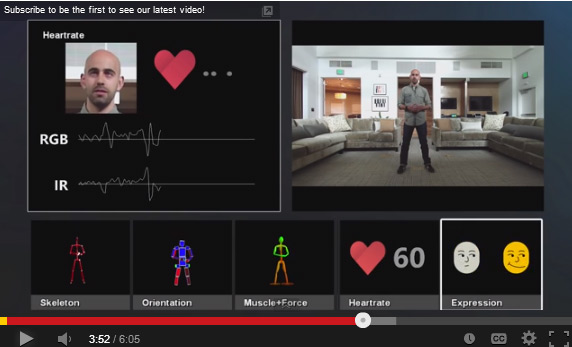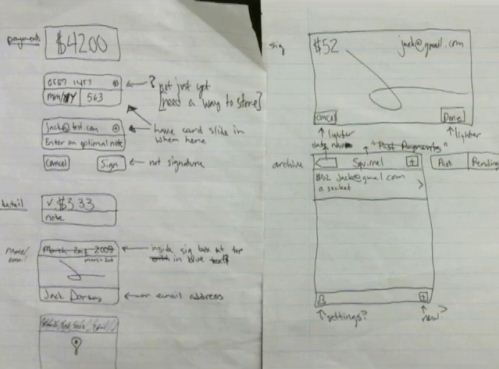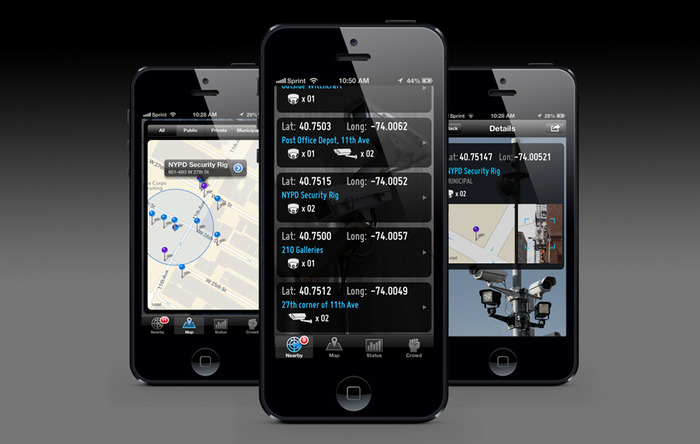NSA PRISM: 12 Tech Tools To Keep the Government & Anyone From Spying On You
By now you’ve all heard the recent news: The government is monitoring both your phone and internet use, and hoarding the data for whatever purpose they like. Here are some of the top encrypted, decentralized, and open-sourced apps that can make it a little harder for the government and the NSA to spy on you.
Before we get to the list, we must define what these terms mean:
• Decentralized: Decentralized means that not everything is coming from one central server. Think about how on Facebook, all of your information is saved on their servers, so if you were to delete your account, all of your pictures would still be bouncing around in there. With a decentralized website, your computer stores all the information. It also lessens the risk that you will be affected if the security of a website’s centralized server gets compromised.
• Open Sourced: Open-sourced sites are tech lovers’ dream websites. These sites allow users to close security holes or bugs that usually occur in sites, apps, and software. An open-sourced site allows users to look at all of the code within the site to make sure things like security or privacy are up to snuff before they decide to utilize it.
• Encrypted: Sending encrypted messages or visiting secure website is essentially like putting that information in a safe that only you have the code to. The information is covered under (almost) impenetrable code that you can access easily using a password or some kind of a portal.
Without further adieu, here are the apps:
1.GNU MediaGoblin

MediaGoblin is a media hosting website just like flickr, Tumblr, or Youtube, but this website is decentralized and, from what I can tell, open sourced. That means the media uploaded to this site stays saved on your computer, rather than being stored in a central server out of your control. It also means that you programmers out there can take a look at the website’s code and “check under the hood” before uploading your images and videos.
2. ownCloud

If you’re like me, then you’ve never really trusted Apple’s big universal cloud. Well if you don’t like the idea of all of your information floating around up there with everyone else’s information, ownCloud is a solution for you. ownCloud is different from “the” cloud because it runs off of your own computer’s server. You can access it from all of your other devices, but, your information is not stored on a the big cloud server along with everyone else’s Social Security numbers and email contact lists. This makes it harder and less likely for hackers or the government to stumble onto your information.
3. I2P: The Darknet

I2P is for the seriously paranoid. I2P provides an internet cloak that attempts to hide and mask every move you make on the internet.
4. Diaspora*

Facebook is infamous for being a secretive and problematic when it comes to your information and what they do with it. Diaspora* is the transparent alternative. A social networking sight with all of the perks of both Facebook and Twitter, Diaspora* consolidates your newsfeed to show you stories about all of the #hashtags that you list as an interest.

5. Etherpad

Since many major internet companies have denied knowledge of the government’s PRISM program, it is unclear as to just how much of your information the government has had access to. Seeing as Google has been implicated, it may be important to start using a more secure program than Google docs for online document sharing and collective editing. That’s where Etherpad comes in. Etherpad provides an open source environment that allows users collective real-time access to documents.
6. Jitsi: The Encrypted Skype

Worried about the government spying on your Skype or Google Chat sessions? Jitsi provides a free video call service that is completely encrypted and open sourced. Enjoy totally secure video chats and know exactly what security measures are in place with Jitsi.
7. Cryptocat: For Secret Untraceable Instant Messaging

This a fun one, Crypocat is a simple and easy to use free instant-messaging program. It takes a quick download and provides a safe, secure, and untraceable place to have private conversations.

8. Bitmessage: Encrypted Email Service
Just like Cryptocat, Bitmessage provides its users with encrypted and secure emails. This will help prevent hackers or the NSA from gaining access to your virtual mailbox and see who is sending who what.

9. Bitcoin: The Lawless World of Digital Money

Bitcoin is a digital currency service that allows a person to transfer real money into a digital currency, and allows them to spend it without being tracked. Many organizations that people generally cannot be caught monetarily supporting, like Wikileaks, receive donations in Bitcoin. However, the currency has been in the news lately as part of a major world-wide money laundering scheme. You may want to proceed with caution on this one.

10. Black SMS App: Encrypted Text Messages For Iphone

From Gizmodo The Black SMS app for Iphones only cost $0.99, but it is totally worth the pennies. The app converts messages into little black bubbles that you can send to your friends. The only way they can then decipher the texts is if they copy and past the black bubble into their own password-protected version of the app. This won’t just hide your text messages from government agents — it will confuse the hell out of them.
11. TOR Secure Web Browser
The best thing you can do to stay anonymous online is to hide your IP address. This is the easiest way to trace your online activity back to you. If someone knows your IP address, they can easily determine the geographic location of the server that hosts that address and get a rough idea of where you’re located. Broadly speaking, there are three ways to obscure your IP address and hide your location:
 Use a proxy server. If you want all of your online activity to be anonymized, the best way to do it is to pretend to be someone else. This is basically what a proxy server does: it routes your connection through a different server so your IP address isn’t so easy to track down. There are hundreds of free proxies out there, and finding a good one is just a matter of searching. Most major browsers offer proxy server extensions that can be activated in just one click
Use a proxy server. If you want all of your online activity to be anonymized, the best way to do it is to pretend to be someone else. This is basically what a proxy server does: it routes your connection through a different server so your IP address isn’t so easy to track down. There are hundreds of free proxies out there, and finding a good one is just a matter of searching. Most major browsers offer proxy server extensions that can be activated in just one click- Use a Virtual Private Network (VPN). For most intents and purposes, a VPN obscures your IP address just as well as a proxy does – and in some cases even better. They work differently, but achieve the same result. Essentially, a VPN is a private network that uses a public network (usually the Internet) to connect remote sites or users together. So, if I were to log into Digital Trends’ VPN, anyone looking at my IP address would think I’m in New York when I’m actually in Georgia.
- Use TOR. Short for The Onion Router, TOR is a network of virtual tunnels that allows people and groups to improve their privacy and security on the Internet. Browsing with TOR is a lot like simultaneously using hundreds of different proxies that are randomized periodically. But it’s a lot more than just a secure browser. We won’t get into the details here, but you should definitely check out its site if you’re concerned about anonymity.
12.Whonix, The Ghost Operating System, Stay Untraceable Online
Whonix is a free, general purpose computer operating system based on Virtual Box, Linux and Tor. The purpose of Whonix is to allow Internet users the ability to stay anonymous online. This is most beneficial to users in regimes that censor and monitor access to the Internet, but it can also be used by anyone who values their privacy, or doesn’t want their activities tracked online. Whonix automatically sets up an isolated network environment where your virtual “Workstation” can perform all normal Internet related tasks such as checking email, browsing web sites, blogging, connecting to corporate VPNs, etc. However all of that outbound traffic is then routed in such a way that it can only pass through your virtual “Gateway”, which encrypts the packets and sends them over several hops on the TOR network prior to landing at their final destination.
 |
| How Whonix Works: Figure 1 |
Once your traffic leaves the Whonix Gateway it is routed directly through the TOR network. Instead of taking a direct route from source to destination, data packets on the Tor network take a random path through several relays, so no observer at any single point can tell where the data came from or where it’s going. The relays even take additional steps to erase your tracks periodically along the way.
 |
| How Whonix Works: Figure 2 – Routing Through TOR |
Inspired by
Wired Magazines article : http://www.wired.com/threatlevel/2013/06/nsa-prism-verizon-surveillance/
The Mozilla project Stop Watching Us Campaign: https://optin.stopwatching.us/
The Washigton Post’s Article: http://www.washingtonpost.com/blogs/wonkblog/wp/2013/06/10/five-ways-to-stop-the-nsa-from-spying-on-you/




















































